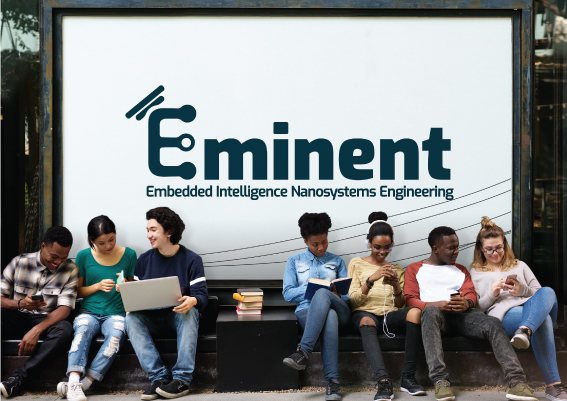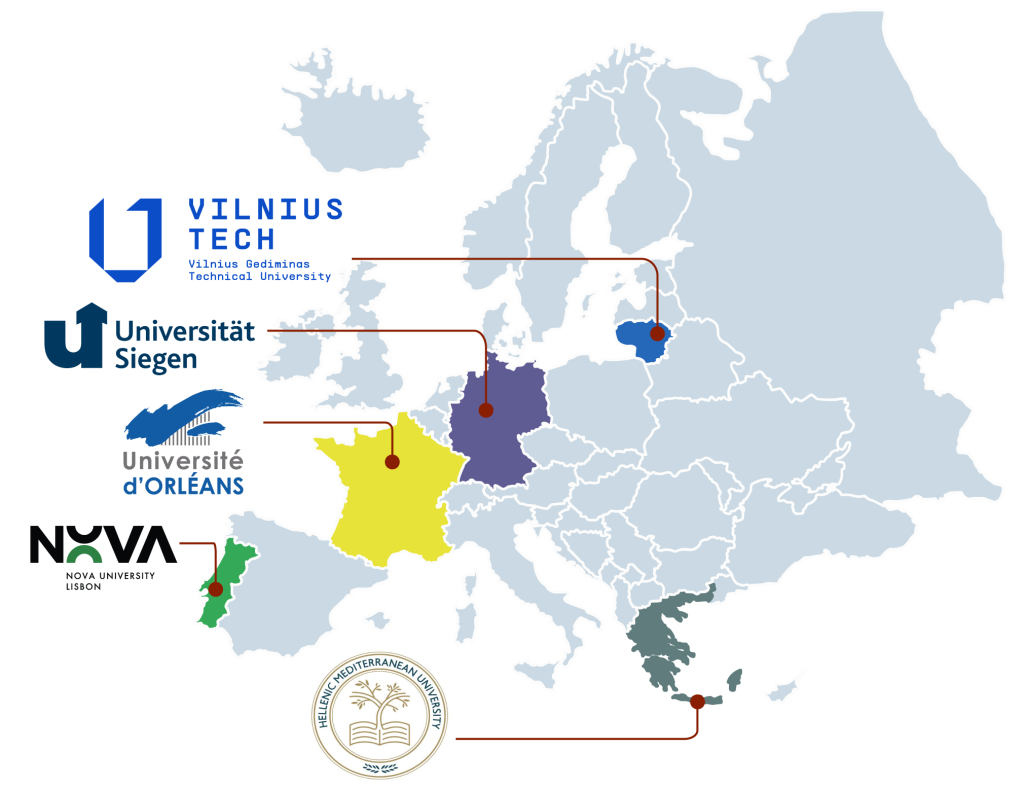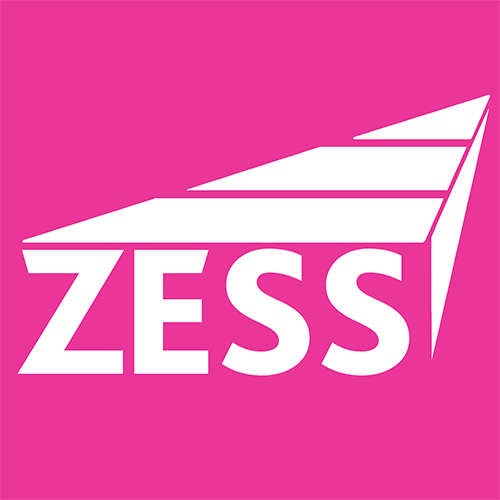
DFG Research Unit 5336 “Learning To Sense”
The Confluence of Machine Learning and Sensor System Development
The German Research Foundation (DFG) has selected L2S as one out of eight research units in Germany that conduct dedicated fundamental research on artificial intelligence along with an interdisciplinary partner field, in this case sensor system development. The project is situated at ZESS where it can build upon more than 30 years of experience in the field of fundamental and application-oriented, interdisciplinary, research.
Sensor System Development
Developing and optimising the next generation of CMOS Sensors, THz imaging systems, and 3d microscopes taylored to specific automatic data analysis applications.
Sensor System Simulation
Developing faithful simulators of the three sensor modalities in order to know how the recorded data changes as the design parameters of a sensor system are changed.
Machine Learning
Developing new approaches to jointly optimize for the sensor system design along with neural networks parameters.
![The PIs of the DFG-Research Unit "Learning to Sense" at ZESS. Front, ltr: Prof Ivo Ihrke, Prof Bhaskar Choubey, Spokesperson Prof Michael Möller, rear, ltr: Prof Volker Blanz, Prof Andreas Kolb, Prof Margret Keuper. Not pictured: Prof Peter Haring Bolívar [Photo: Sascha Hüttenhain]](http://www.zess.uni-siegen.de/wp-content/uploads/2024/10/DFG-Research-Unit-Learning-to-Sense-at-ZESS_Copyright-Sascha-Huettenhain-1024x729.jpg)
Front, ltr: Prof Ivo Ihrke, Prof Bhaskar Choubey, Spokesperson Prof Michael Möller, rear, ltr: Prof Volker Blanz, Prof Andreas Kolb, Prof Margret Keuper. Not pictured: Prof Peter Haring Bolívar [Photo: Sascha Hüttenhain]
![DFG Research Unit Learning to Sense in Mannheim, March 2024 [Foto: Jan Soehlke/ZESS, University of Siegen]](http://www.zess.uni-siegen.de/wp-content/uploads/2024/10/DFG-Research-Unit-Learning-to-Sense-in-Mannheim_Copyright_Jan-Soehlke_ZESS-University-of-Siegen-1-1024x656.jpg)
For a period of four years (with a possible extension by another four years) a team of seven chairs from Electrical Engineering and Computer Science will closely collaborate on the question how to jointly develop and optimize image sensor system hardware and machine learning approaches to reach optimal performances for specific applications. Our research unit focusses on the development of novel CMOS sensors for visible light, optimal 3d microscopic setups, and optimal sub-surface THz imaging technology along with dedicated machine learning approaches in an application-specific setting.
You can learn more about the project at its website https://www.learning2sense.de/
DFG Research Grant “WASEDO”
Wearable-federated, weakly-supervised Activity Sensing through Egocentric Detection of Objects
Body-worn sensor systems bare a great potential in analyzing our daily activities with minimal intrusion yielding various applications, ranging from the provision of medical support to supporting complex work processes. With (deep) neural networks representing the state-of-the-art technology for the automatic analysis of such data, a key bottleneck becomes the annotation of data for the underlying training, specifically because the acquired non-visual data is difficult to interpret in hindsight, and visual data represents a significant intrusion in the privacy of any participant in such a study. Therefore, the goal of this proposal is to study a federated learning approach, in which clients use both wrist-worn sensors and camera glasses, where the latter deliver visual data that is merely used to locally supervise the training of a network analyzing the wrist-worn sensor signals. By following this weakly-supervised federated learning approach, we are able to avoid both the necessity for manual annotations, as well as the submission of visual data to a central server. Our goal is to conduct fundamental research on the weak supervision as well as the collaborative training to combine our results in a practical solution for wrist-worn sensor data analysis.
European Masters Programme “EMINENT”
Future ubiquitous digital technologies are a keystone in the global efforts in advanced automatization, environmental monitoring, and climate protection, driven by the overarching Green Deal vision. The underlying demand in cross-sectional “sensing” and “sense-making” intelligent technologies result in a continuous convergence of the fields of nanotechnology, edge intelligence and smart perceptive sensor systems, merging them into embedded intelligence nanosystems. As a consequence, there is an increasing demand at economic and academic level for human talents with a corresponding broader, more generalist educational background. This demand is further amplified by the envisioned transition of Europe, from presently predominantly being a consumer of digital hardware towards a global leader and provider of IoT and CPS technologies.


The EMINENT master’s programme provides students with such a holistic education in embedded intelligence nanosystems engineering. It combines advanced training starting from the nanoscale material and device technology to the computing architectures of intelligent sensing elements, including the perspectives of macroscale integrated systems and meaningful IoT application areas. It joins excellent research and innovation oriented educational expertise across Europe, extending in this case from Portugal in the West to Lithuania in the East. This approach is absolutely unique on the European level and thereby provides unique benefits and opportunities for the students enrolled in the programme:
- Broad technological and educational expertise, and the research and innovation infrastructure, typically unavailable at a singular institution
- In depth curriculum on embedded intelligence nanosystems engineering complimented by topical specialisation tracks and digital, entrepreneurial and soft skills
- Training across existing disciplinary barriers
- Collaborative education in close contact with associated industrial partners and their networks in the employment market
- Learning beyond cultural barriers, enabling easier moves between countries
- Integrated and coordinated enhanced mobility plan
- Joint degree awarded by the participating academic institutions
- Consideration of all admitted students for the award of a scholarship
- EMINENT support service: Enrolment Advisors, visa support, welcome days, mentoring system, Alumni Club, career service, disability support.
You can learn more about EMINENT at the programme’s website https://eminent-master.eu/
ATHENA European University
The “European Universities Initiative” is a flagship project of the European Union in the field of higher education and research that aims to make European universities more open, efficient, and inclusive on an international level. The Advanced Technology Higher Education Network Alliance (ATHENA) is one of the pilot projects of this initiative that were selected by the European Commission in 2020. ATHENA brings together the Polytechnic Institute of Porto (Portugal, coordination), the Universities of Maribor (Slovenia), Orléans (France) and Siegen (Germany), Hellenic Mediterranean University (Greece), Niccolò Cusano University (Italy) and Vilnius Gediminas Technical University (Lithuania). The ZESS is actively involved in the implementation of ATHENA’s offer, with a special focus on the areas of Research & Development and involvement of regional industry.

International Cooperation in Research & Development
Along with the promotion of internationalised study programmes, mobility offers, and digital learning, one of ATHENA’s focal points is international cooperation in the field of Research & Development. Based on the latest technological findings, innovative methods are developed to enable cross-border research and to establish it in a European higher education framework. International research cooperations increase the exchange of doctoral students and lecturers at the participating universities and strengthen the quality of European research.
Practice-oriented research projects in collaboration with industrial partners ensure a consistent alignment with global market needs. Students, teachers, and representatives of industry tackle social and ecological tasks together. A central point of ATHENA’s vision is to actively share the research results with society and to always direct them towards social benefits.
Strengthening Cooperation with Industrial Partners
Through its involvement in ATHENA, the University of Siegen is developing innovative solutions to address trend-setting challenges in the European labour market. These include, on the one hand, advancing digitalisation and automation, and, on the other hand, the increasing demand for highly qualified employees. ATHENA offers companies access to help shape curricula and keep pace with the rapidly changing demands of the labour market. Together with industry partners, ATHENA develops strategies so that expertise can be pooled in Europe and existing resources can be used in the best possible way.
Close cooperation between industry, teaching, and research enables research results to be exchanged sustainably between companies and the universities involved. Students have a wide range of opportunities for practice-oriented learning within the framework of doctoral projects, student research projects, or working as student trainees and benefit from the best possible opportunities on the international labour market and a successful transition from studies to work.
Further information is available on the website https://athenauni.eu/. You can find a brief description of ATHENA’s goals and offers in German in the project flyer.
